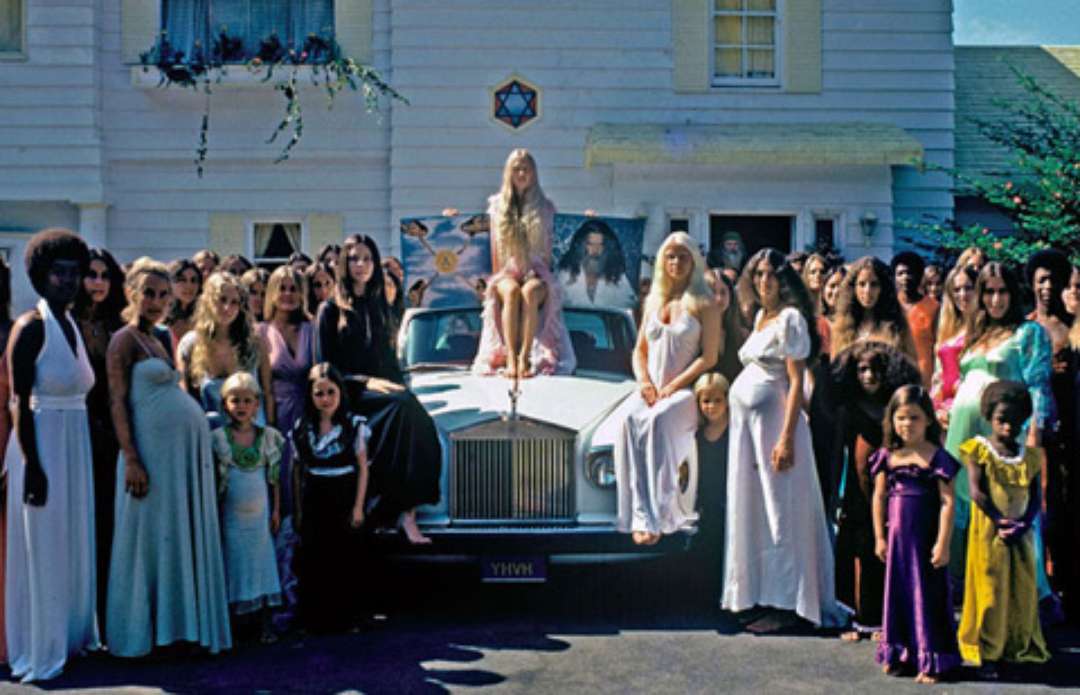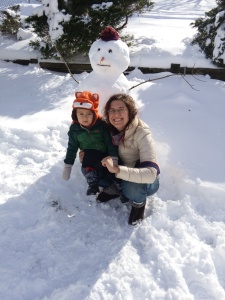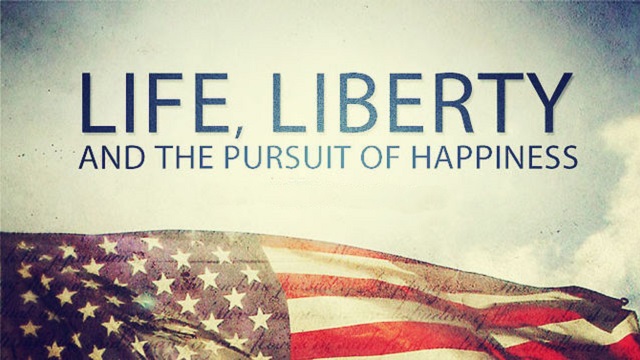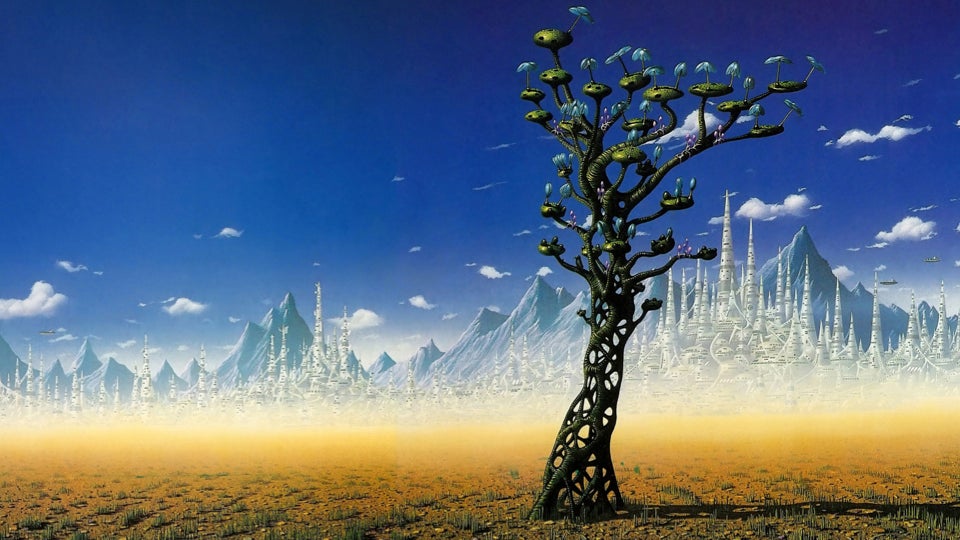“And then, one Thursday, nearly two thousand years after one man had been nailed to a tree for saying how great it would be to be nice to people for a change, a girl sitting on her own in a small café in Rickmansworth suddenly realized what it was that had been going wrong all this time, and she finally knew how the world could be made a good and happy place. This time it was right, it would work, and no one would have to get nailed to anything.”
― Douglas Adams, The Hitchhiker’s Guide to the Galaxy
It is today my 42nd birthday and I decided this would be a good year to reflect. Why 42, why not 40 like any other normal person with a penchant for round numbers? According Douglas Adams’ Hitchhikers Guide to the Galaxy series a supercomputer was asked to come up with the answer to Life, the Universe, and Everything and 42 was that answer. So I am at the age which is the answer, but of course if you read the series you know that while the answer was determined a more powerful supercomputer had to be created to determine the question (which turned out to be the planet Earth). So 42 seems like a great age to think about answers and questions.
 This is also the year that I often joked would be when I started my own cult. This was supposed to be easy as I was going to have a good portion of Twitter followers, find myself a good compound with fertile soil and enjoy the good life. Extra wives would have been optional. It’s weird how as I get older there seems to be more of a drive to keep life simple and surround yourself by like minded people. Anyway, Twitter really doesn’t suit me, for as you can see, I don’t say many things in 140 words or less so my followers are few, and I think life is better that way, and also I’m not a very proficient gardener, so I’m probably better off living close to the farmer’s market. So here I am, nobody famous and nobody to follow, and a mini essay of reflection is probably more suited to greater personalities, but hey, it’s the age of information and I have a blog, so why not write? 🙂
This is also the year that I often joked would be when I started my own cult. This was supposed to be easy as I was going to have a good portion of Twitter followers, find myself a good compound with fertile soil and enjoy the good life. Extra wives would have been optional. It’s weird how as I get older there seems to be more of a drive to keep life simple and surround yourself by like minded people. Anyway, Twitter really doesn’t suit me, for as you can see, I don’t say many things in 140 words or less so my followers are few, and I think life is better that way, and also I’m not a very proficient gardener, so I’m probably better off living close to the farmer’s market. So here I am, nobody famous and nobody to follow, and a mini essay of reflection is probably more suited to greater personalities, but hey, it’s the age of information and I have a blog, so why not write? 🙂
Life
I think what makes being a teenager so difficult is that this is the time in your life when you start to self-actualize a lot more and really think about the future. It’s a terrible thing really, because you are also still young enough where you really don’t know shit. I remember thinking a lot about the type of person I wanted to be. My dad was (and still is) an alcoholic and as a teenager I knew that I didn’t want to be like my dad. Kids respond to those who are consistently there for them, and my mom was that person. Of course I’ve come to realize many positives about my dad as well, but as a kid I knew that whatever way my dad was, wasn’t working. My mom was loving, supporting, nurturing, and always there. At the time I never really looked at my mom and dad’s personalities as related gender, but more as what are the behaviors that lead to increased happiness and that bring increased happiness to others. I am sure it did in many ways shape why I’ve always felt more free to be myself more in front of women than men, and why I look beyond arbitrary categorizations of people and simply try to stick to values that bring happiness.
 I also remember thinking that I was not the person I wanted to be. I felt like I was this amazing person who was trapped inside myself. Inside a shell that I needed to break out of. I know now that there is a certain element of being a child of an alcoholic that makes us more fearful of self-expression because of how we internalize our parents’ addiction, but I think teenagers can simply be apprehensive about inserting themselves in the world no matter how much they want to. I know I am a person who leans toward safety over risk, and that was one of the things I wanted to get better at as I got older which was to be bold. It’s still the quality I struggle with the most, but I’m proud to say that the vision I had for myself at around the age of 16 isn’t far off the mark. The compliment that I have received several times and means the most to me is when people tell me that they can tell immediately the type of person that I am because I am so open and. It is the part I like about myself the most especially because I think life is too short to pretend with people. I am proud that I have reached a point in life where I am comfortable in my own skin, and it is something that has always seemed like a necessary way to be, but I in no way want to imply that I have go there solely on my own.
I also remember thinking that I was not the person I wanted to be. I felt like I was this amazing person who was trapped inside myself. Inside a shell that I needed to break out of. I know now that there is a certain element of being a child of an alcoholic that makes us more fearful of self-expression because of how we internalize our parents’ addiction, but I think teenagers can simply be apprehensive about inserting themselves in the world no matter how much they want to. I know I am a person who leans toward safety over risk, and that was one of the things I wanted to get better at as I got older which was to be bold. It’s still the quality I struggle with the most, but I’m proud to say that the vision I had for myself at around the age of 16 isn’t far off the mark. The compliment that I have received several times and means the most to me is when people tell me that they can tell immediately the type of person that I am because I am so open and. It is the part I like about myself the most especially because I think life is too short to pretend with people. I am proud that I have reached a point in life where I am comfortable in my own skin, and it is something that has always seemed like a necessary way to be, but I in no way want to imply that I have go there solely on my own.
Another thing I worried about when I was young was that I wasn’t original. I felt like everything I was, was copied from somebody else. I didn’t have any original ideas, I wasn’t creative. As I was thinking about what to write in this post yesterday I was wondering if I should say that the meaning of life is “theft”. We are born as absolutely blanks and while genetics may texture our canvas to a certain respect we are painted on by the many people we come to know in life, our culture and society also paints broad brushes over us too. Of course theft isn’t really the right word. People and society paint things upon us and we have little say in that. And in most other cases it is people who in my life who have given, and I have taken, and I would like to believe that with time I have been better about showing my gratitude. It would not be until a certain Star Trek: The Next Generation Episode that I felt better about my lack of originality. Here Captain Picard comments on the emotionless android Data’s violin playing.
 PICARD: The good doctor was kind enough to provide me with a recording of your concert. Your performance shows feeling.
PICARD: The good doctor was kind enough to provide me with a recording of your concert. Your performance shows feeling.
DATA: As I have recently reminded others, sir, I have no feeling.
PICARD: It’s hard to believe. Your playing is quite beautiful.
DATA: Strictly speaking, sir, it is not my playing. It is a precise imitation of the techniques of Jascha Heifetz and Trenka Bronken.
PICARD: Is there nothing of Data in what I’m hearing? You see, you chose the violinists. Heifetz and Bronken have radically different styles, different techniques, yet you combined them successfully.
DATA: I suppose I have learned to be creative, sir, when necessary.
PICARD: Mister Data, I look forward to your next concert.
So yes, I now feel original, thanks to lines written by somebody else. Star Trek has actually taught me quite a bit now that I think about it. 🙂 Life is also full of irony and paradoxes enough to make you scratch your head for a lifetime. In the end though, isn’t this what we really are…a product of others, both biologically and environmentally with a unique level of proportions such that we are originals? What I really mean to say about all this is that I feel really grateful to all those who have given and for what I have taken. I have taken the best of you to the very heart of me and a result carry you everywhere. Some I’ve not seen or talked to in some time, some it may have only been a brief time in which we knew each other, or perhaps were not even very close friends, but I saw what was good in you, I smiled at it, and celebrated it and let it course through my arteries. I am thankful for all the love, the friendship, the inspiration, the memories, the lessons taught, and yes even the criticism and in some cases hurt. I am unique and original because of all of you and there is no other way I’d rather be.
The Universe
Growing older also means growing more aware as you continue to experience and learn in life. As someone who is strongly committed to learning as awareness grows so does the burden of that knowledge. It is only in the most recent years that I have truly understood the expression ignorance is bliss. However, it is also important to remember that your own bliss is of little value to anybody else but yourself, and we are a social species. As I’ve learned I continued to have more awe for this amazing universe we live in, uncovering the darkness that shrouds knowledge also means discovering the horrors, the malice, the pain, and the suffering. It is all the worse when you are one of the lucky ones to have things far better than so many. It makes you question the very right to feel happy. And when it comes down to it, it makes me feel bad just complain about how heavy the thoughts are sometimes, because I am so fortunate to just have to think about it and not actually experience the hardships so many bear. I am fortunate that I can put those thoughts to the side at times. However, I also know there is no denying it either. And I know that just feeling sad and depressed all the time would be debilitating so there is nothing for it but to do something about it. I am not helpless under this weight although sometimes it can feel that way. So I try, and I let myself feel happiness for all the beauty that exists as well. There is much to fight against in this world, but I feel if we forget what we’re fighting for, it’s easy to get lost in the darkness.

I believe that it is this mixture of awe-inspiring beauty and soul-draining horror that drives us. I think we can’t help but feel small in the face of it. Some try to conquer it by building belief systems that explain it all, some try to chip away at the answer slowly through careful investigation, and some just turn to vices to distract themselves and to numb themselves. However, from what I’ve seen, the true winners in this world are always the ones who accept how small they are in the face of it all. It’s bigger than any one individual and it’s the one thing we all have in common. It is enough to make you just sit there and think “Why can’t we just all get along? It really does seem so simple to just be nice to each other. Nobody has to get nailed to anything.
As I look forward the things on the horizon are amazing. Just as there are things in my young life I never thought possible but exist now, I know there are many unknown wonders that await me for the rest of my life. I like being this age and knowing all the things that I know. Wisdom comes to you without even knowing it, and I like it. I admit that I am not a big fan of leaving this existence. I see us getting closer to things like unlocking the mysteries of aging, replacing organs, interfacing the computer to the brain and I wonder if in the not too distant future we might have a choice to live far longer than we do to do. I am jealous quite frankly. As someone who embraces change and has seen how changes occur over time spans far greater than our human lives I would like to experience it. I want to choose when I want to leave this existence and have a shot at deepening that well of wisdom beyond this short time on Earth. When I think of all the change that has occurred over 1000 years, 10,000 years and so on…I wonder what it would be like to see it…what perspective that would give you…how you would look at the universe differently. I suppose such a chance will not happen, but I keep the dream alive only because it is at times helpful to remember that we are not only small in terms of the vastness of space, but also the vastness of time. I can’t be expected to figure it all out, and that’s okay.
And Everything
 There isn’t much more to say here. Of course there is more to life I suppose, but it’s amazing how important some people become so that even the other things seem to tendril out from it. I know that there are no guarantees in life, but that’s why living in the moment is so important. I am lucky that I have a life where I can take care of them just as much as they take care of me. The fact that our love can put some things at the center of our life, at the center of our universe, is amazing What more could I want? I do have everything.
There isn’t much more to say here. Of course there is more to life I suppose, but it’s amazing how important some people become so that even the other things seem to tendril out from it. I know that there are no guarantees in life, but that’s why living in the moment is so important. I am lucky that I have a life where I can take care of them just as much as they take care of me. The fact that our love can put some things at the center of our life, at the center of our universe, is amazing What more could I want? I do have everything.











 PICARD: The good doctor was kind enough to provide me with a recording of your concert. Your performance shows feeling.
PICARD: The good doctor was kind enough to provide me with a recording of your concert. Your performance shows feeling.




